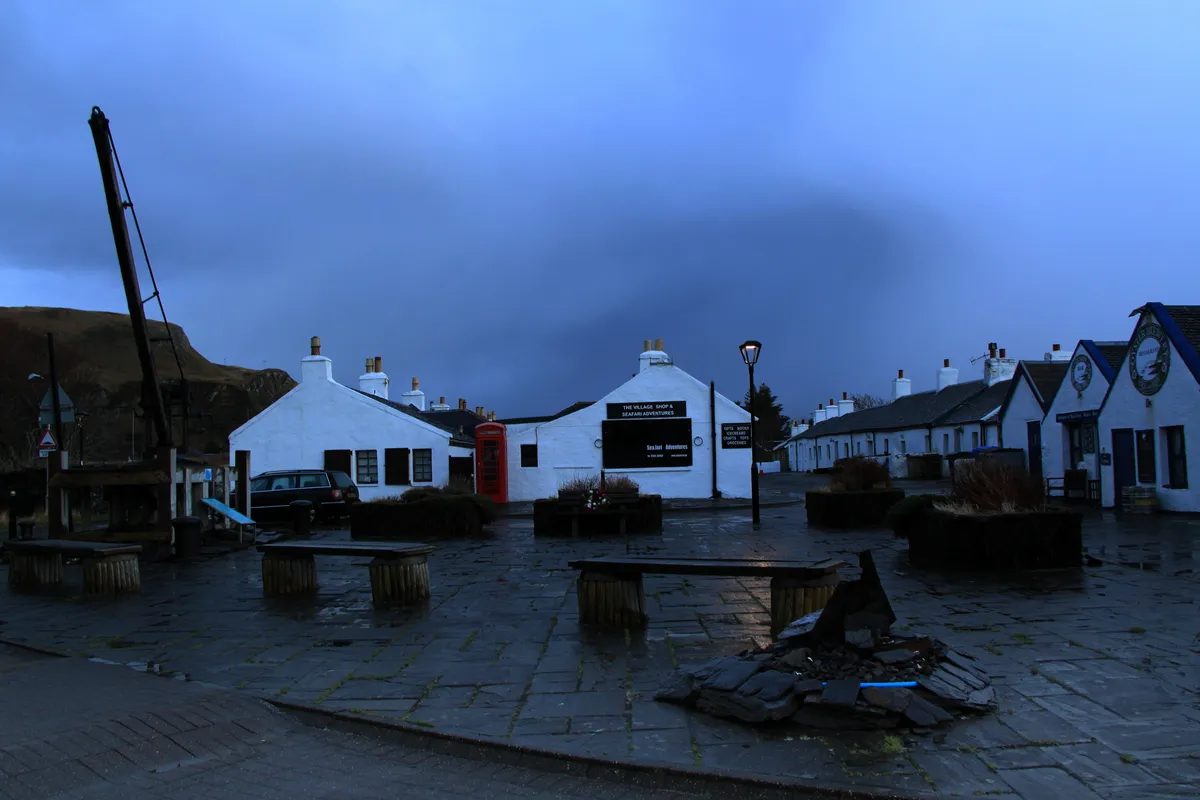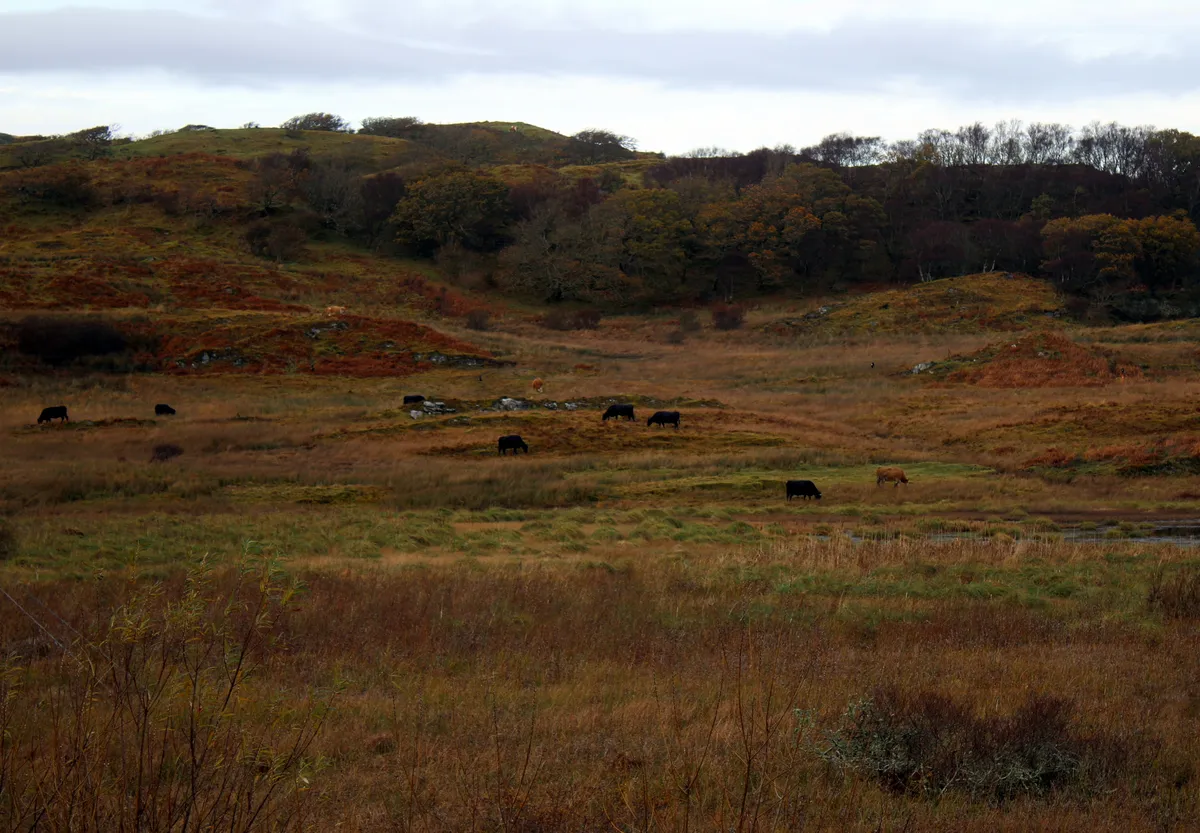There is a word in the Scots dialect called dreich. It does what is best with any descriptive word in a language, it rolls together perhaps five things in one. Dreich means grey and miserable and cold and bleak all at once, and it might have been the word we Scots invented for November.

The island, our island of Seil, is certainly grey in November. It seems composed of many shades of grey. The little lochan we love so much, set in our kitchen window, is grey as slate and ruffled with a near constant breeze.

Despite the lateness of the year it’s set almost in tweed of moorland colours: woven strands of dark oranges and rusty reds. And sometimes the cattle come to graze here, adding their various hues. Going out at all feels an act of real courage, for that cold seems almost colder than snow. It hurts the very frame of the face and burrows deep into the bones.
So what we have and what we must open our eyes to are the tiny moments, the moments of light. There are the times of going outside with the wood basket to have the whole sky suddenly clamouring with greylag as they scatter down onto the part of the lochan closest to our house.
For we have seen and learnt that every living thing knows its place in this little stretch of water. A few weeks ago there was the mighty soughing of wings overhead as two swans, necks outstretched, came as though carved out of ice and skimmed almost soundlessly onto the lochan.
I watched them with the joy of a child, unable to go and do a hundred things that the day demanded. And their cygnets joined them: three smaller and greyer versions of themselves. But the parent swans, it was clear, knew there was a hierarchy on this water. Just a day or so later I saw to my amazement that a second pair of swans had arrived: there were now seven birds in all.

But as I watched the lochan in delight, the male that had arrived first (at least I am presuming it was the male) took off and flew only a foot above the water – right at the birds that had arrived second, intent on driving them off. And he scattered any greylag or mallard that dared come too close as well.
Getting truly close to the lochan presents real difficulty for us. At this time of year the surrounding ground is far too marshy, and walking out towards the water anyway would simply put all swans and geese to flight.
So what has become a boon for Kristina for photography is the small turret-like space just outside the studio that’s being built as my writing space above the garage. A little elevation is a wonderful thing: a few feet make all the difference.
When the odd frost does descend at night the following morning is a jewelling of glistening fragments and the sky a perfect blue. But more often than not it’s dreichness we waken to, and that means retreating to the stove and the early dark; it means listening to the wind in the chimney and the leaves scurrying the road.
It means winter has returned, that Seil is battening down the hatches for the long months of weather ahead.
Photos by Kristina Hayward
